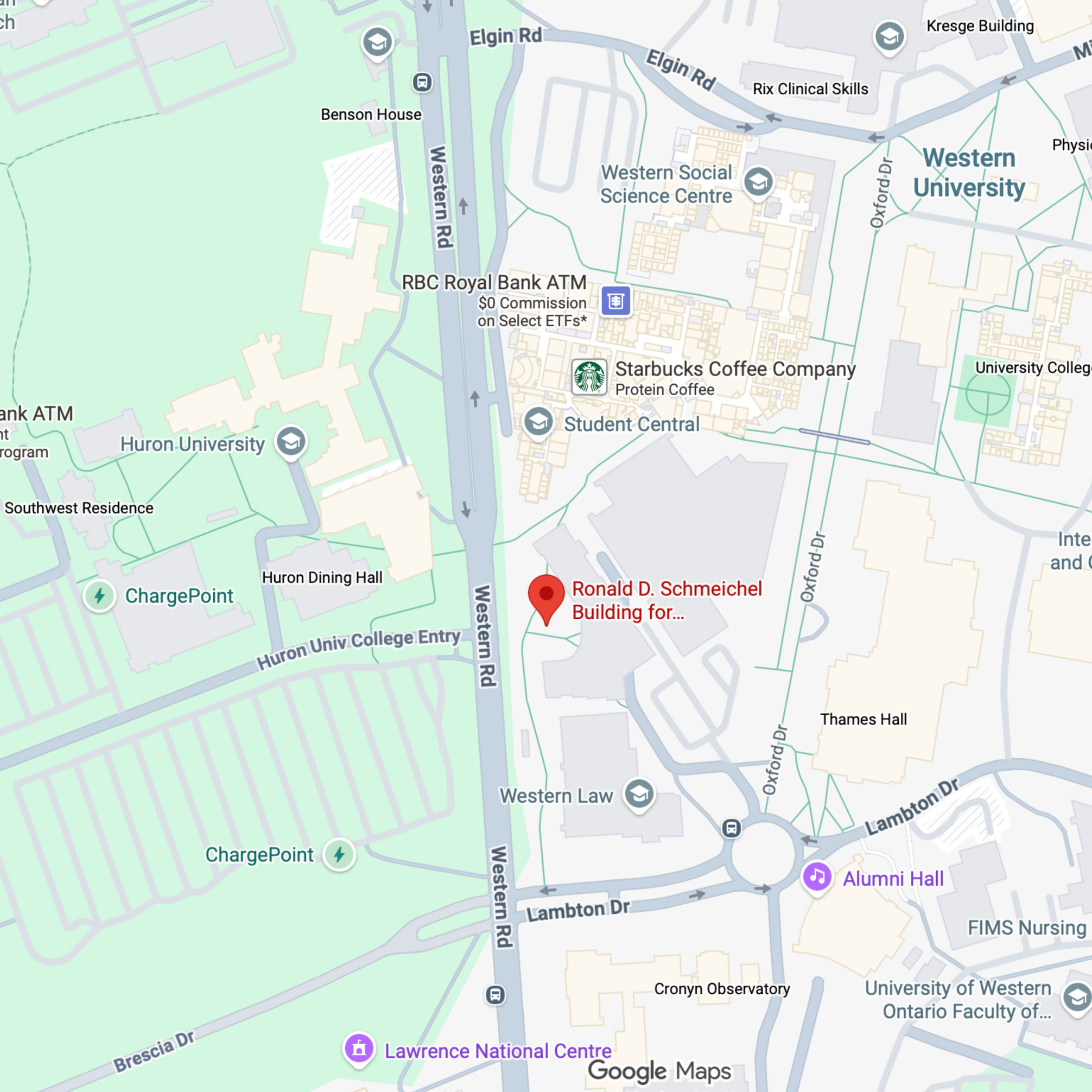Schedule
Community Half Day
Feb 19th | 17:00-19:30
17:00-18:00 Poster Session, Art Exhibit, Community Booths, and Networking
18:10-18:15 Opening Remarks by SONGS & WIN
18:15-19:15 Keynote Lecture - Dr. Jonathan Lau
19:20-19:30 Award Ceremony & Closing Remarks by SONGS
Scientific Day
Feb 20th | 9:00-16:30
9:00-10:00 COFFEE AND BREAKFAST
10:00-10:15 Opening Remarks by Dr. Paul Gribble & SONGS
10:15-11:15 Morning Keynote - Dr. Sergey Stavisky
11:15-11:30 BREAK
11:30-12:30 Concurrent Data Blitz Presentations (Rm 4109 & 4110)
12:30-14:30 Lunch and Great Debate: Individual Neurons vs. Neural Populations: Where is the Code?
14:30-15:00 BREAK
15:00-16:00 Afternoon Keynote - Dr. Jonathan Michaels
16:00-16:30 Closing Remarks
Location
For the February 19th community event, complimentary parking will be available across the street at the Springett parking lot. The first 70 guests can access free parking by using the code NRD2026 on the HONK mobile app. Guests with student parking passes should park in the green section, while staff parking passes are valid in any non-reserved area of the lot. Please avoid parking in any spaces marked as reserved.
Ronald D. Schmeichel Building for Entrepreneurship and Innovation, Rm 1110
Western University, London, ON


